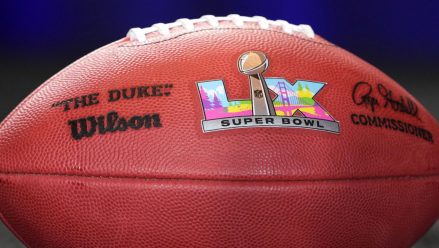Databases. Yawn.
Collated commerce. Not yawn.
Companies hoard these troves of contact information and consumption history greedily, ready to wield them at already inclined buyers when the next concert ticket or viral pet toy is ready to roll out.
Sportsbooks are no different.
DraftKings and FanDuel leveraged massive customer databases of daily fantasy sports players to form a national sports betting duopoly when legal wagering became each state’s decision in 2018.
Fanatics, a global sports apparel giant, formed a gambling company in 2021 and launched a sportsbook in 2023. Within two years, it’s made huge gains nationally. Fanatics Betting & Gaming was recognized at SBC Summit Americas 2025 with the Rising Star award for operators.
A database of more than 110 million global apparel customers undoubtedly helped, Chief Business Officer Ari Borod told InGame.
“I think it’s a combination of the database and the brand,” he said. “Not only are these customers who’ve sort of transacted with Fanatics before, but they’ve also obviously seen the Fanatics brand and learned to trust the Fanatics brand. And that’s an incredible jump-starter for our business, because it is very hard to earn customer trust.”
According to InGame research, Fanatics has climbed into fourth place in United States sports betting market share. FanDuel and DraftKings have established themselves as a duopoly, together controlling upwards of 70% of the country’s legal market. While Fanatics is groping for the podium with its apparel database, DraftKings and FanDuel continue to reap their databases of 4.8 million and 4.5 million active users, respectively. Those caches of customers were first cultivated when the companies were ubiquitous daily fantasy sports purveyors and have grown as they added sports betting and online casino.
Granted, other factors contributed, crucially their name recognition and both companies being willing to expend mounds of cash to acquire new customers.
They also exploited a business anomaly, Lloyd Danzig, the managing partner at Sharp Alpha, told InGame.
“In most new industries, consumer readiness lags behind product availability. In sports betting, it’s the opposite,” said Danzig, whose investment firm specializes in sports, gaming, and entertainment. “DraftKings and FanDuel built massive DFS user bases well before the legalization of online sports betting, providing a critical first-mover advantage in user acquisition and enabling the outsized capture of latent demand.”
In the process, they benefited from the COVID-era ascendancy of digital gambling in the United States. Though legacy casino brands MGM and Caesars “possess extensive loyalty databases from their land-based casino operations,” Danzig says, those players were typically “less digitally native” and not as primed to become mobile sports bettors.
MGM offers digital sports betting across the U.S. through BetMGM, a joint venture with Entain.
Databases are more than a list of emails
As very valuable things, databases have long been coveted by very unscrupulous characters.
“There was a time and place where everybody used to break in and steal the databases of companies,” Gambling Hall of Fame inductee Paris Smith said. “So all of a sudden you’d get a call from some schmo that maybe left a company, let’s say a company in the Caribbean that had 50,000 players. ‘Hey, I have a player base for Company X.’
“And people that were like, ‘Ooh, this is going to be great. I don’t have to market. I know that they’re active players, blah, blah, blah.’ So they would pay money for those databases. At that point, I worked at Pinnacle and I was like, ‘I wish somebody stole our database and sold it because our players were so sharp. It would just be catastrophic for everybody.’”
But Smith is skeptical about the power of crossover from different types of businesses.
“Just because you have a name, if you don’t have somebody who’s clearly interested in sports betting, it won’t work,” she said. “Let’s say you take that whole player base. I don’t know what their numbers are, but just my guesstimate would be like 3% might be interested in sports betting.”
Borod hopes that Smith is wrong and that Fanatics’ broad profile beyond the gambling industry continues to help stoke growth within it.
“I think the Fanatics brand is pretty prevalent throughout sports, so it’s something that people recognize as a brand that they trust to sort of transact with and continue to be a customer of,” he explained. “In launching a new sportsbook, having that embedded trust has been extremely helpful for Fanatics.”
A bridge is needed, Smith said, between those inclined to try sports betting and actually making a deposit and betting at the sportsbook. That’s content, she said.
“That’s why the media and content companies right now are so valuable,” she observed. “And these bigger companies are looking to acquire them. People that buy hats don’t necessarily understand betting. But if they put something out about betting education as content, ‘This is how you bet. This is what you do. This is your money management,’ etc., then the people that go to that would churn much higher than the people that just go to buy a hat. You need like a linkage of content that’s going to intrigue people.
“If I walk into Walmart and somebody asked me if I want a betting account, I’m just going to ignore them.”
Fanatics database leaves room for many bettors
If Smith’s guesstimate is accurate, at least 3.3 million members of Fanatics’ existing database could be assumed as amenable to sports betting, which would have made it immediately competitive in the U.S. market.
Borod acknowledged that some of the base is foreign and theorized that a “huge chunk” of DraftKings and FanDuel customers are also in Fanatics’ database, “because these are sports fans who shop with us. But that doesn’t mean they’ll readily patronize the Fanatics Sportsbook.”
“So while bigger, they don’t necessarily know us immediately as a sports betting brand,” he conceded, “and that’s our job to continue to get the word out there and give them really good customer experience to see like, ‘Oh, not only do I like Fanatics for the other stuff I do, it’s actually what I should be betting as well.’”
Danzig said that while Fanatics has made “notable strides” in cross-selling customers between the apparel business and the sportsbook with FanCash, much of its recent success is attributable to online casino cross-selling and “capturing of VIP activity.”
Database value, power of possession persist
What can be collected and mined will continue to evolve. And who controls the lists will continue to be a point of contention.
“Going forward,” Danzig said, “the most valuable databases will combine behavioral intent with transactional history across multiple touchpoints (e.g. sports media consumption, real-money gaming, merchandise purchases, geolocation data). First-party data with high signal-to-noise ratios, especially around user preferences and conversion behavior, will drive both superior product personalization and lower-cost customer acquisition.”
Databases are currently a crucial part of formulating a plan that California tribes find acceptable enough to allow for legal sports betting in the state. A system unveiled in March by the Sports Betting Alliance — composed of BetMGM, DraftKings, Fanatics, and FanDuel — would feature a tribal syndicate regulating and working through national sportsbook brands faced toward the public.
Some have voiced concerns about current Native American gambling operators losing control if a brand new database of mobile sports bettors that could eventually become priceless in iGaming is legalized in California.
While industry sources contend national brands don’t need or care about these retail casino databases, there is a concern among tribes about being insulated from new customers.
“I think every operation wants to control their own books,” Pechanga Casino Resort president Sean Vasquez told InGame. “Why would you want to act as a funnel for those operators? In terms of the total TAM (Total Addressable Market), that doesn’t make any sense.
“I don’t want to forfeit a book over to somebody else. And I don’t want to work hard such that they’re building their name off of the quality of our brand either, because [if] somebody comes to Pechanga, they actively want to go to Pechanga. And now they have to use that service provider? Hell, no.”






